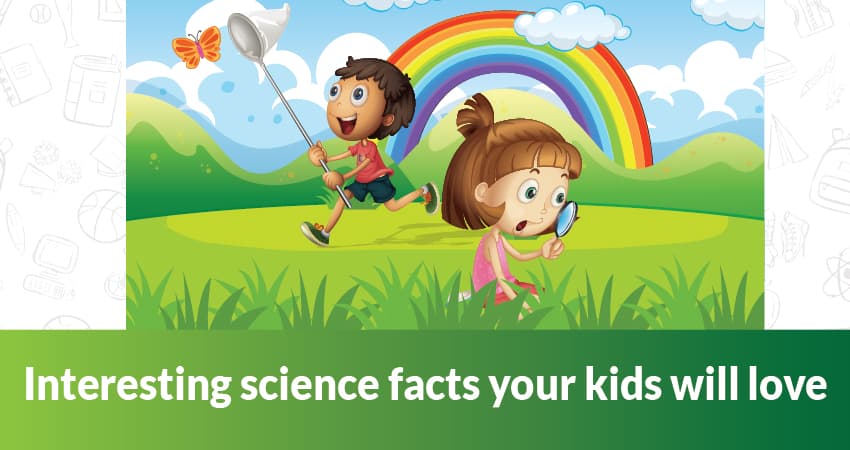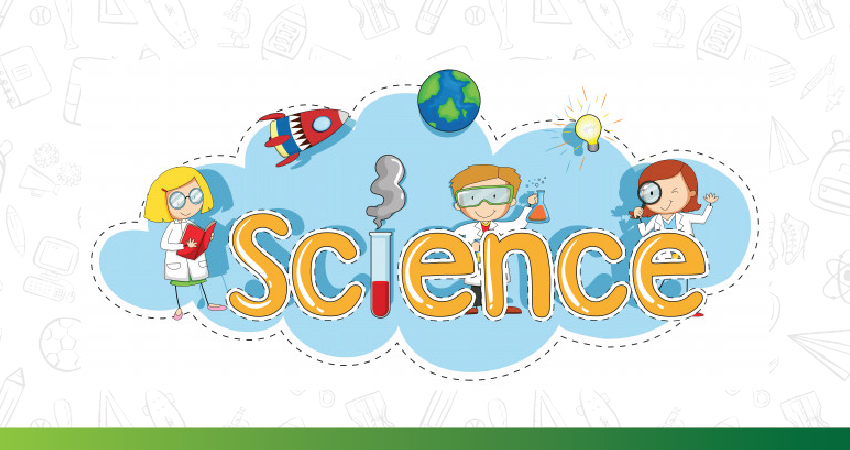15 amazing science facts that will blow your mind
By orchidadmin |
Date 05-09-2023

Table of Contents
Admissions Open for
Children and science
The posterity of yesterday built the technologies of today. A kid who was awed by computers was Bill Gates today; many children love rockets, but one child’s love for it surpassed the rest. And today, he is Elon Musk, sending rocket after rocket out of the atmosphere, with a goal of terraforming Mars. Just imagine the laughs and mockery he would have faced in his adolescence when he told his friends that he wanted to send people to Mars. But he is doing it, becoming a progenitor of private space travel. Similarly, children of today are tomorrow’s scientists. Wide-eyed curiosity in a kid’s mind is the fuel for changing tomorrow’s world. We all understand the necessity of science. After all, science has done in the last five hundred years what our ancestors didn’t do for hundreds of thousands of years. Scientific children do not just live vibrant and fulfilling lives, but they also elevate humanity further. They love learning science facts for kids and the reason behind everything they see.

Though science has progressed much, there is still a lot to achieve, many problems to solve, like The Theory of Everything, the Dark Matter and Dark Energy, and the most desirable of all, why does time travel only in one direction. Maybe your little one is the future Einstein, who will crack one of such significant problems and take humanity to the next level and learn science facts for kids.
Importance of science facts and trivia
- Kindle curiosity
While studying and memorizing laws or equations might bore a kid, a fascinating fact would make them curious. A weird little trivia will garner their attention and make them take an interest in science.
- Make them experiment
Now that they have learned about a peculiar oddity, which is also true, in an otherwise mundane subject. So they would try their best to find the reason behind such apparent anomalies in science, which for all intents and purposes, a cool mystery for them to spend their time on.
- Search for more
After solving one intriguing mystery, children would feel like they achieved something extraordinary when they learn about new science facts for kids. Finding an answer to an interesting scientific fact doesn’t give them the thrill, but the tedious work they did brought them the reward. To feel the same challenge and the eventual exhilaration, they would start searching for more.
- Want to pursue science for a living
Now that they got a taste for the wonders of science, they might start loving the subject, even though it is just because it entertains them. And children would love to do what entertains their curious brains, which would lead them to enroll in science majors in their higher studies.
- Betterhood of our species
Children who got interested, thanks to science facts for kids, will be future scientists, using that same mystery-solving attitude to crack the big questions of life. And when they find the answers, our whole species benefits.
Okay. We now know that cool science facts for kids can make a kid love science. Let us list out fifteen of them that we found interesting, which we hope will also impress your child.
Science Facts about Space
Let’s learn some amazing science facts for kids about the vast space:
- How many men made objects do you think that’s in space? A hundred? Two hundred? Surely it couldn’t be more than a thousand, right? How about 34,000? Yup, space junk consists of the wastage and redundancy from our space exploration. These tiny pieces orbit the Earth at a whopping 17,000 mph, making it incredibly dangerous for the astronauts and shuttles. It is a problem that needs solving.
- Now we answer a question almost every kid on the planet ponders over at least once. How long can you survive without a spacesuit in space? Fifteen seconds. That’s how long it would take your lungs to use up all the oxygen in the blood.
- More than 99% of the mass of your solar system comes from the sun. Everything else combines to form just the remaining 0.2%
- If you do the impossible and count all the sand from every beach on the Earth, it is still not as much as the number of stars in the Universe. That’s how incomprehensibly gigantic our Universe is.
- You can’t walk on Jupiter, Saturn, Uranus, and Neptune because they don’t have concrete surfaces as they are made up of gases.

Science Facts about Biology
How many science facts do you know about biology aka living beings? Well, here are some that we know about:
- Guess what the largest living thing in the world is? Not an elephant or a blue what? It is a fungus, specifically Honey Fungus in Oregon, measuring 3.8 km across.
- It takes a minute for a single blood cell to circulate the body.
- If you take all the DNA in a human body and tie it end to end, that would be enough to stretch from the Sun to Pluto 17 times.
- Though the brain is the reason we all feel in different parts of the body, the brain itself cannot feel pain.
- Human eyes don’t ever grow; they remain in the same size from birth to death. But noses and ears never stop growing.
Science facts about Physics and Chemistry
Lastly, here are some science facts for those who are curious about physics and chemistry:
- Light travels faster in a medium with lower density, while sound travels at faster speeds the higher the density.
- Due to Einstein’s relativity, time moves faster at the top of a building than at its bottom because time slows near the Earth’s surface. However, we don’t feel it because the difference is incredibly negligible.
- When something gets cold, it shrinks except water, which expands when it freezes into a block of ice.
- We all have around 9.5% of hydrogen in our bodies. And it is discovered that all the hydrogen atoms formed at the heart of a start. So you literally have within you what was once a star.
- Iron gives blood its red color, and the same element, which is abundant in Mars, gives the red planet its famous color.
Also read..
Tips To Solve Social Anxiety Problems In Children
Stuttering in Children and Toddlers
CBSE Schools In Popular Cities
- CBSE Schools in Bangalore
- CBSE Schools in Mumbai
- CBSE Schools in Pune
- CBSE Schools in Hyderabad
- CBSE Schools in Chennai
- CBSE Schools in Gurgaon
- CBSE Schools in Kolkata
- CBSE Schools in Indore
- CBSE Schools in Sonipat
- CBSE Schools in Delhi
- CBSE Schools in Rohtak
- CBSE Schools in Bhopal
- CBSE Schools in Aurangabad
- CBSE Schools in Jabalpur
- CBSE Schools in Jaipur
- CBSE Schools in Jodhpur
- CBSE Schools in Nagpur
- CBSE Schools in Ahmednagar
- CBSE School In Tumkur

Call Us to know more about Orchids
Swipe Up
















